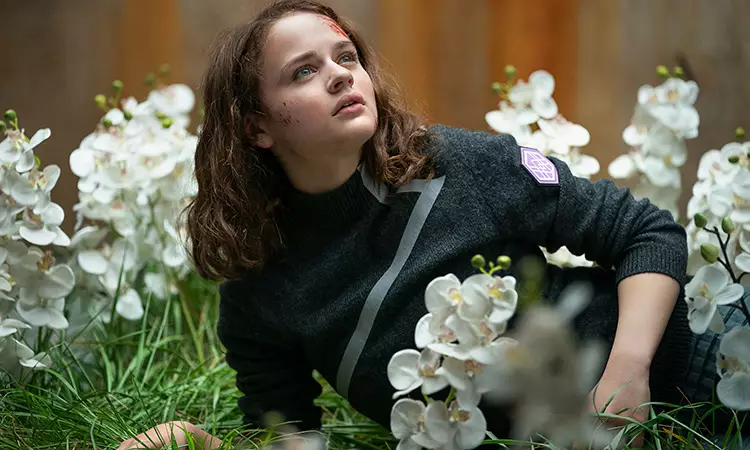Scott Westerfeld’s Uglies, published in 2005, has captivated young adults and readers of all ages with its provocative themes and compelling characters. The novel paints a vivid picture of a dystopian future where societal norms dictate the beauty and worth of individuals, culminating in a surgical procedure that transforms “Uglies” into “Pretties” upon their sixteenth birthday. The highly anticipated Netflix adaptation, featuring rising stars Joey King and Laverne Cox, promises to bring this multifaceted story to life with a fresh perspective. As audiences await the release later this year, it’s worth exploring the underlying themes, character arcs, and the adaptation’s creative approach.
At its core, Uglies revolves around Tally Youngblood, a girl who longs to undergo the cosmetic surgery that will finally solidify her acceptance in a society obsessed with beauty. Initially, Tally’s excitement mirrors a superficial understanding of self-worth, yet her journey deepens as she learns about her friend’s rebellion against the norm. Tally’s internal conflict serves as a microcosm of larger societal issues regarding self-image and conformity. As she navigates her world, Tally’s eventual discovery of the ‘Smoke,’ a community that rejects societal beauty standards, forces her to grapple with her identity and the immense pressures placed upon her.
This theme of inner versus outer beauty resonates particularly in today’s digital age, where social media continually promotes unrealistic standards of appearance. Tally’s evolution from eager conformity to defiant self-acceptance exemplifies a vital message that speaks to the challenges faced by today’s youth.
In casting Joey King as Tally, the adaptation chose an actor deeply connected to the source material. King’s journey with the book began when she was just eleven, marking the onset of her fascination with the narrative. Her enthusiasm and dedication to delivering an authentic portrayal as both the star and executive producer is commendable. It reflects a growing trend in Hollywood where actors not only perform but also take a vested interest in how their characters are represented on screen. King’s love for Tally’s story demonstrates a commitment to authenticity that could resonate with fans of the original novel.
Furthermore, King’s insights into Tally’s struggles may infuse the adaptation with a relatable humanity that draws viewers into the character’s complex world. The fusion of enough emotional depth complemented by King’s energetic portrayal could capture the hearts of viewers and rekindle interest in the themes the novel so richly explores.
Under the skilled direction of McG, the adaptation is poised to explore sophisticated themes with nuance. McG, known for his work on Charlie’s Angels, Terminator Salvation, and adaptations like Shadowhunters, brings a wealth of experience to this project. He recognizes that Uglies isn’t merely a tale of rebellion but also a commentary on societal notions of beauty in the digital age. His perspective that the film fosters a dialogue around self-acceptance, even amidst external pressures, is crucial in an era dominated by social media filters and edited realities.
Moreover, Westerfeld’s active involvement in the adaptation underscores a significant collaborative effort in preserving the essence of the narrative. With both Westerfeld and McG drawing from the original themes while infusing contemporary relevance, this movie could potentially highlight the intersection between escapism and reality, making it relatable to both old fans and new audiences.
One of the most intriguing aspects brought to attention is the acknowledgment from Westerfeld and McG that Uglies, while set in a dystopian world, thrives on moments of joy and camaraderie among its characters. The ‘Uglies’ are not just victims of a grim society, but individuals engaging in pranks and adventures. This aspect adds a layer of complexity, inviting the audience to see the resilience of youth even in a flawed system. Such a portrayal may galvanize younger audiences to see their strengths and the fun in rebellion against oppressive norms.
Westerfeld’s comments about McG’s directorial vision, where he expresses how important it is to encapsulate the quirky and humorous elements of the narrative, imply that the adaptation will not shy away from exploring the lighter moments amidst the seriousness. This balance can enhance viewer engagement, making the movie both enlightening and entertaining.
As the release of the Uglies adaptation approaches, anticipation is palpable. With passionate performances, a distinct creative vision, and a commitment to honoring the original narrative, this Netflix project holds promise. By tackling complex issues related to beauty, self-acceptance, and encouragement to redefine standards, it not only aims to entertain but also to empower audiences. The re-emergence of Uglies on screen invites not only nostalgia for longtime fans but also an opportunity for discussion among a new generation facing similar societal challenges.


Leave a Reply